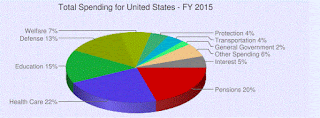There is one way I've ever managed to get someone to acknowledge the costs of minimum wage. I explained that minimum wage might still be desirable despite the costs. When I did this, it was like I was giving them permission to have a more nuanced view -- a reasonable view where everything has
some costs -- an economic view of tradeoffs. I sealed off their sacred belief, that minimum wage is ultimately a good thing. I took it out of discussion and all of the sudden they were able to accept the reason of what I was saying.
I think of a line Jonathan Haidt gives, everyone holds something sacred and everyone wants to be rational, but when the two conflict they throw rationality under the bus.
So how to get people to change their mind? Make sure that the sacred and the rational do not conflict. Make sure they know that they get to hold onto their sacred beliefs, and what you're saying is only true up until they conflict with those sacred beliefs.
Laymen: Minimum wage is sooooo critical! I am unaware of any negative unintended consequences and it keeps wages from plummeting!
Economist: When you make something more expensive people buy less of it, this means that with minimum wage employers buy less labor from low skilled workers. Without minimum wage, these earners would be paid the market wage. There's no reason to expect the market wage to be far beneath the minimum wage. We certainly should not expect wages to plummet.
Laymen: You don't know what you're talking about. You're in the pockets of big business who want us to believe that. You've never worked for minimum wage in your life. Look at Mexico, they have low minimum wage and their workers are poor. Look at Seattle, they have a high minimum wage and they don't have high unemployment. Yada yada, the internet give me whatever reasons I need to believe whatever I want.
Economist: Look, minimum wage might still be a good idea. Within the right margins, it can put extra upward pressure on wages and keep disemployment effects to a minimum.
Laymen: Okay, maybe I'll think about what you said.







